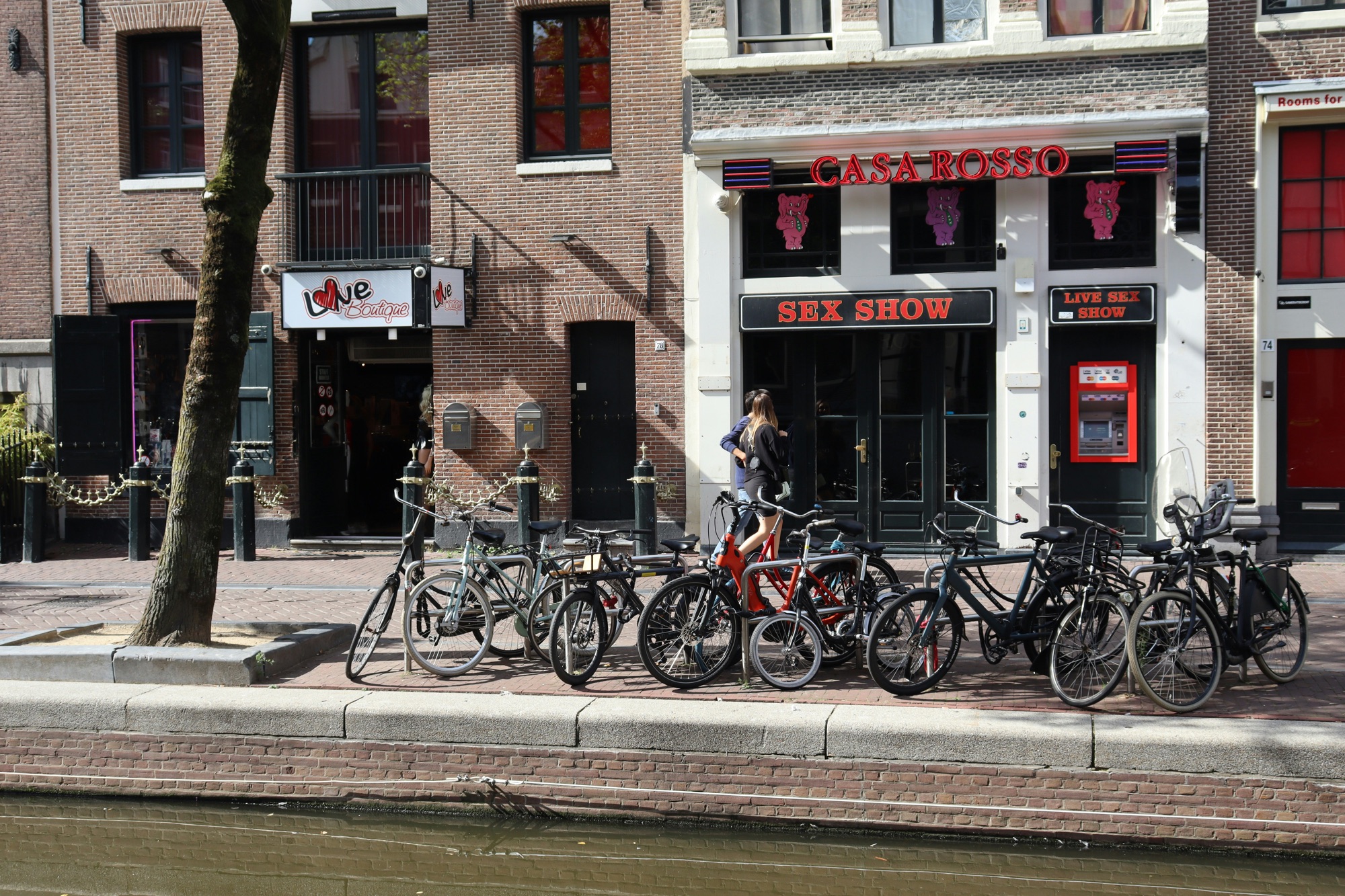Prostitution, often referred to as the “world’s oldest profession,” exists in various forms across the globe. The legality of sex work varies widely from country to country, with different legal frameworks and cultural attitudes shaping how prostitution is regulated and managed. In some nations, it is fully legalized and regulated by the government, while in others, it exists in a legal grey area or is strictly prohibited. This article provides an in-depth look at 12 countries where prostitution is legal, examining the unique ways in which these countries regulate the practice and the implications for sex workers and society.
1. Germany
Germany is known for its comprehensive and highly regulated approach to prostitution, which was legalized in 2002. Under German law, sex work is treated as a legitimate profession, with sex workers entitled to legal protections, labor rights, and access to health insurance. Brothels are also legal and subject to government regulation. Sex workers are required to register with local authorities and pay taxes on their earnings.
- Regulation: Sex workers must undergo regular health checks, and brothel owners must ensure that their establishments meet strict hygiene and safety standards.
- Impact: While legalization has improved the rights and working conditions for some sex workers, critics argue that it has also led to an increase in human trafficking and exploitation, particularly of vulnerable women from Eastern Europe.
2. Netherlands
The Netherlands, particularly the city of Amsterdam, is famous for its Red Light District and liberal attitude toward sex work. Prostitution has been legal in the Netherlands since 2000, with brothels fully regulated by the government. Sex workers are considered independent contractors and are required to pay taxes, have regular health check-ups, and operate within designated areas.
- Regulation: Brothels must obtain licenses from local authorities, and sex workers are required to be at least 21 years old. The government also works to ensure that sex workers are not exploited or trafficked.
- Impact: Legalization in the Netherlands has created a safer environment for sex workers, but it has also faced challenges, such as illegal prostitution and human trafficking, which continue to be issues in some areas.
3. New Zealand
New Zealand is often cited as a model for the decriminalization of sex work. The Prostitution Reform Act of 2003 decriminalized prostitution, allowing sex workers to operate as independent contractors or work in brothels. The act also aims to protect sex workers from exploitation and ensure their safety and well-being.
- Regulation: Sex workers are not required to register with the government, but brothel operators must obtain licenses. The law also requires sex workers to use protection during sex, and police are prohibited from harassing or exploiting them.
- Impact: New Zealand’s approach to decriminalization is widely regarded as successful, as it has improved the safety and health of sex workers while reducing the stigma associated with their work.
4. Switzerland
Switzerland has a well-regulated legal framework for prostitution. It is legal for adults over the age of 18 to work as sex workers, and brothels operate legally under strict guidelines. Prostitution is regulated at the cantonal level, with each region having its own specific rules. Zurich, for example, is known for its “sex drive-ins,” where clients can visit designated areas for sexual services.
- Regulation: Sex workers must register with authorities, and brothels must meet strict safety and hygiene standards. Sex workers are required to have regular health checks, and the use of condoms is mandatory.
- Impact: Switzerland’s regulatory approach has helped reduce the risks faced by sex workers, but like other countries, it continues to grapple with issues of trafficking and exploitation, particularly of foreign workers.
5. Australia (Certain States)
Prostitution laws in Australia vary by state, with some states like New South Wales (NSW) fully decriminalizing sex work. In NSW, sex workers can legally operate independently or in brothels, and they have access to legal protections and health services. Other states, such as Queensland and Victoria, have legalized but heavily regulated sex work, while it remains illegal in some areas.
- Regulation: In NSW, sex workers are not required to register or obtain licenses, but brothels must meet strict zoning and safety regulations. In states with legalized prostitution, sex workers must often register and undergo health checks.
- Impact: In areas where prostitution is legalized or decriminalized, sex workers report safer working conditions and greater access to health services. However, the inconsistent laws across Australia can create confusion and disparities in how sex workers are treated.
6. Mexico
Prostitution is legal and regulated in certain parts of Mexico, most notably in designated “tolerance zones” such as in Tijuana. In these zones, sex workers must register with local authorities, undergo regular health checks, and carry health cards that certify they are free of sexually transmitted infections (STIs). Outside of these zones, prostitution is generally unregulated and operates in a legal grey area.
- Regulation: In tolerance zones, sex workers are required to adhere to strict health and safety guidelines. Brothels in these areas are also subject to government oversight.
- Impact: While regulated prostitution in Mexico provides a safer environment for sex workers in designated areas, the lack of regulation outside these zones can lead to exploitation and unsafe working conditions.
7. Austria
Prostitution in Austria is legal and regulated, with sex workers required to register with local authorities and undergo regular health checks. Brothels are legal, but street prostitution is only allowed in designated areas. The government has implemented strict regulations to ensure the safety and health of sex workers.
- Regulation: Sex workers must carry health certificates and are required to use condoms with clients. Brothel owners must obtain licenses and ensure that their establishments comply with safety regulations.
- Impact: Austria’s regulatory framework has improved working conditions for sex workers, but like many other countries, it faces challenges related to human trafficking and the exploitation of foreign workers.
8. Denmark
Prostitution in Denmark is legal for individuals over the age of 18, but it is not regulated as a formal profession. Sex work is allowed, but brothels are illegal, and third-party involvement, such as pimping, is prohibited. Sex workers are not required to register with the government, and the industry remains largely unregulated.
- Regulation: While prostitution is legal, there is no formal regulatory framework in place, meaning that sex workers do not have access to labor protections or health services specifically tailored to their needs.
- Impact: The lack of regulation has left many sex workers vulnerable to exploitation, though some advocacy groups are pushing for better protections and working conditions for those in the industry.
9. Belgium
Belgium has legalized prostitution, but the country is currently working to introduce a more formal regulatory system. Brothels and other forms of organized prostitution are permitted, but sex workers are not yet considered legal employees. However, the government is working toward granting sex workers labor rights, similar to other professions.
- Regulation: There are currently no mandatory registration or health check requirements for sex workers, but brothels must comply with local safety and zoning laws. Efforts are underway to formalize protections for sex workers.
- Impact: While sex work is legal, the lack of full labor rights has left many sex workers without protections, prompting ongoing reforms to improve their working conditions.
10. Greece
Prostitution is legal and regulated in Greece, but strict rules govern how and where sex workers can operate. Licensed brothels are allowed, and sex workers must register with the government, undergo health checks, and work within designated areas. However, due to the stringent regulations, many sex workers in Greece operate illegally.
- Regulation: To work legally, sex workers must register with local authorities, and brothels must comply with safety and zoning regulations. Regular health checks are mandatory.
- Impact: While legalized prostitution provides some level of protection for sex workers, the strict regulatory framework has pushed a significant portion of the industry underground, where workers are more vulnerable to exploitation.
11. Bangladesh
Prostitution is legal in Bangladesh, and the country is home to some of the largest and oldest brothels in the world. Sex workers in licensed brothels are legally recognized, but the industry remains largely unregulated, leading to poor working conditions and widespread exploitation, especially of young girls.
- Regulation: Legal brothels are subject to minimal government oversight, and while sex workers are allowed to operate, many face stigma, discrimination, and lack access to basic health services.
- Impact: The legal status of prostitution in Bangladesh has done little to protect workers, many of whom face extreme poverty, exploitation, and abuse. Efforts to improve conditions and provide better legal protections are ongoing.
12. Brazil
Prostitution is legal in Brazil, but operating a brothel or profiting from someone else’s prostitution (pimping) is illegal. Sex workers in Brazil are allowed to work independently and are not required to register with the government, but the lack of regulation has led to significant issues, including exploitation and human trafficking.
- Regulation: While prostitution is legal, the lack of formal regulation and oversight leaves sex workers vulnerable to exploitation and unsafe working conditions.
- Impact: The legal status of prostitution has helped reduce stigma around sex work, but the absence of regulation means that many sex workers do not have access to health services, labor protections, or legal support.
Conclusion
The legality and regulation of prostitution vary widely across these 12 countries, with different governments taking unique approaches to managing the sex industry. While legalizing prostitution can provide sex workers with greater protections and access to health services, it also comes with challenges, including human trafficking, exploitation, and the difficulty of fully regulating the industry. In some countries, legalization has improved the safety and working conditions for sex workers, while in others, it has pushed much of the industry underground, where workers face greater risks.
Ultimately, the effectiveness of legalizing prostitution depends on how well the government enforces regulations, protects sex workers from exploitation, and ensures access to essential services. As debates about the legality and ethics of prostitution continue globally, these 12 countries offer a snapshot of the different ways in which sex work can be managed, highlighting both the successes and challenges of legalization.




